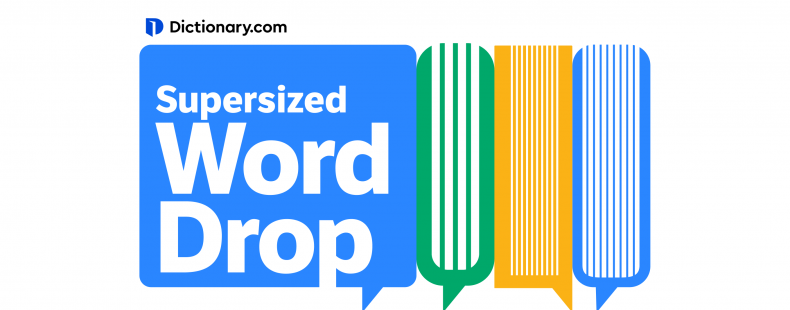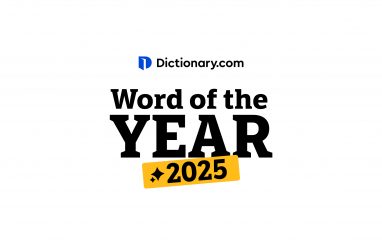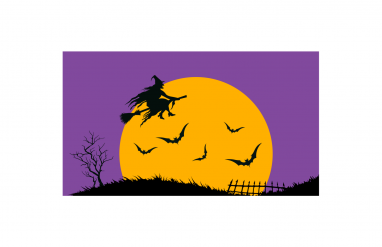Our summer word drop is here, and this time it’s supersized! The 2025 update includes a total of 1,235 new entries — an expansion that highlights words that are trending upward in their usage and long-standing words that have finally cemented their place in the English language.
At a Glance
In the first half of 2025, our lexicographers have written and added 1,235 new entries to our dictionary, spanning 1,798 distinct senses. That’s more words than many dictionaries add in a whole year. Yes, we’ve been very busy!
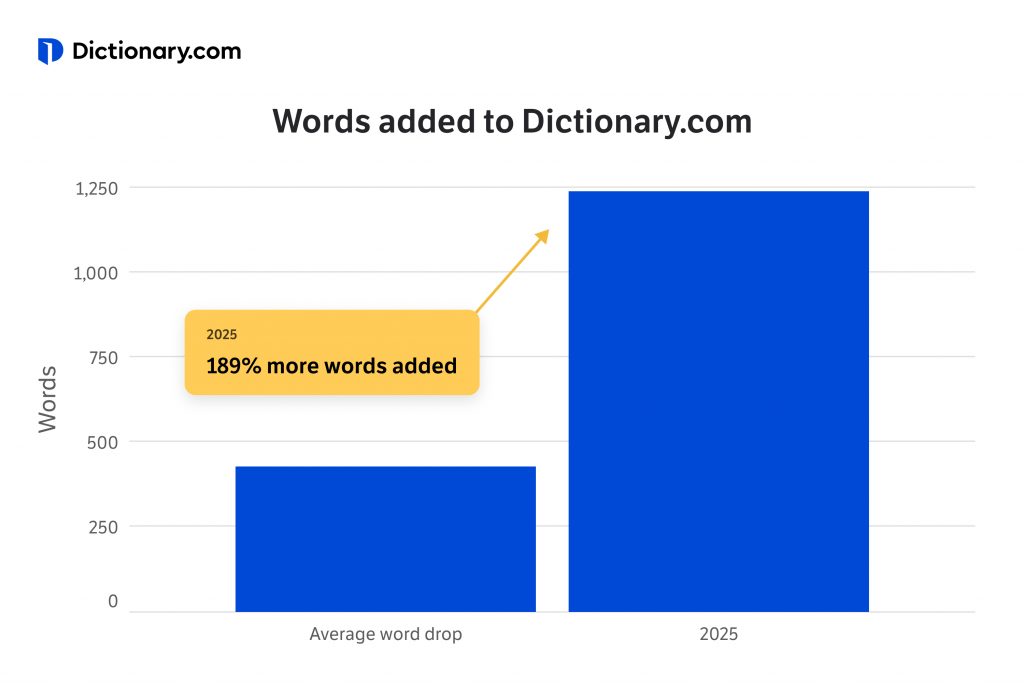
English has a long history of adopting words from languages around the world. This latest update shows that global cultures continue to shape our language, with a particularly strong influence recently from Japanese, French, and Spanish. Here is the breakdown of the major languages our new entries have directly borrowed from:
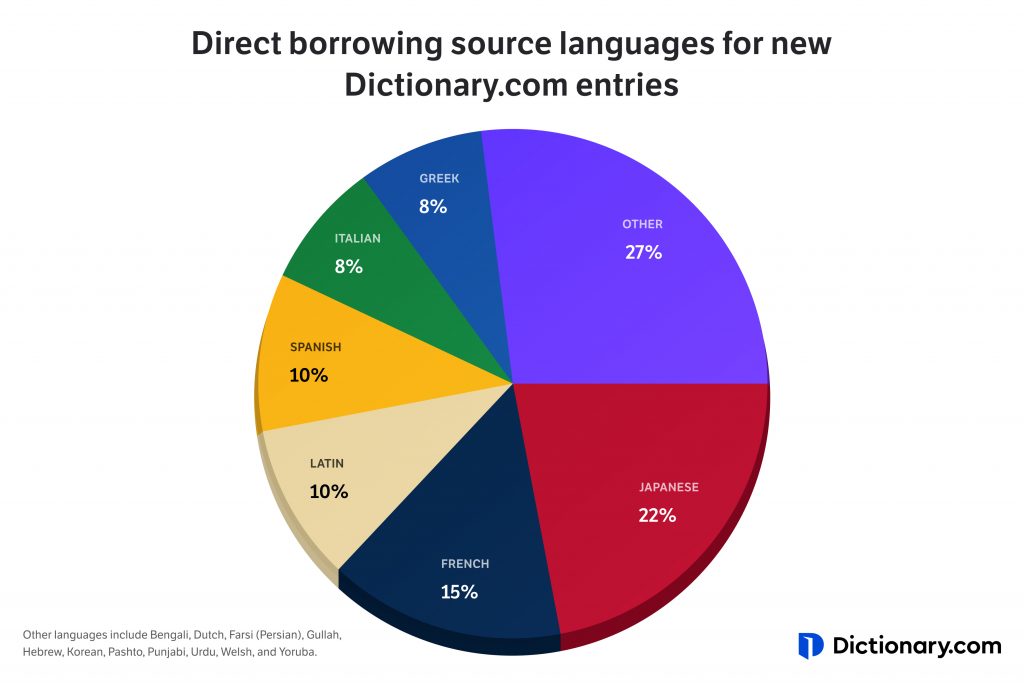
🤔 How Do Dictionaries Work?
If you’re wondering why some words that get added to the dictionary aren’t necessarily new, read more about how dictionaries work and get answers to these questions and more:
- How does a word get into the dictionary?
- That word isn’t new. Why are you adding it now?
- That’s not a word. Why is it in the dictionary?
- I just created an awesome new word. How can I get it into the dictionary?
We know it’s the newly added words that spark the most curiosity and buzz, so without further ado, let’s get on to the trends and words that define this word drop.
Trends That Define This Word Drop
Words with Intensifying Prefixes
While analyzing the list of new words, we noticed that this word drop features many words with intensifying prefixes — word parts added to the beginning of a base word to make its meaning stronger, greater, or more extreme. Here are some examples:
superintelligence
noun. the cognitive capacity of an entity that possesses a higher level of intelligence than humans.
superyacht
noun. a yacht of extraordinary size, power, or luxury.
ultrawide
adjective. extremely wide; much wider than average.
Words from Japanese
In 2024, 36.9 million tourists visited Japan — that’s over 5 million more than any year on record. With increased tourism comes increased interest about Japanese food, culture, and language. Here are some Japanese words that have made their way into English, no passport needed:
okonomiyaki
noun. (Japanese Cooking) a savory pancake made with cabbage and other ingredients such as noodles, meat, or seafood, and served with various toppings and condiments.
furoshiki
noun. in Japanese culture, a piece of cloth, often with a decorative print, traditionally used to wrap gifts or carry things.
maneki-neko
noun. a Japanese good luck statuette of a cat in a sitting position with one paw lifted in greeting or welcome.
Science & Tech
Science and technology are constantly advancing, and with each new discovery or innovation, fresh words emerge to describe these changes. Here are some of our latest upgrades to the dictionary:
voxel
noun. any one of the set of cubic elements that together make up a 3D graphic simulation or representation.
geolocate
verb. to determine the location of (something or someone) by means of GPS or other positioning technology.
Politics
The conversation around policies and politics shapes both our laws and our language. Here are some terms that now hold an official status:
bothsidesism
noun. the practice or habit of representing opposing arguments as equally strong or invalid, whether they are or not.
refoulement
noun. the act of sending a refugee or asylum-seeker back to a jurisdiction where they are likely to be persecuted.
congestion pricing
noun. a policy of reducing excessive traffic by charging motorists a fee to drive a private vehicle into a city center or on busy roads, especially during rush hour.
Slang
And no new word drop would be complete without the latest slang, from viral moments to workplace trends:
kiss cam
noun. a popular feature at stadium events (especially sporting events and concerts) in which two spectators, presumed to be a couple, are shown on a large screen and encouraged to kiss for the audience’s entertainment.
coffee badging
noun. the practice of being physically present at the workplace just long enough to have coffee or to meet attendance expectations before returning to remote work.
sanewash
verb. to misrepresent (a statement, idea, or person) as sensible or acceptable by obscuring extreme or eccentric qualities.
Summary
This word drop reflects how English continues to evolve and be shaped through cultural exchange, technological innovations, and viral trends. The addition of 1,235 new entries in the first half of 2025 is no small feat, but we’re not slowing down. We’re dedicated to capturing and recording the never-ending changes to words in the English language.
